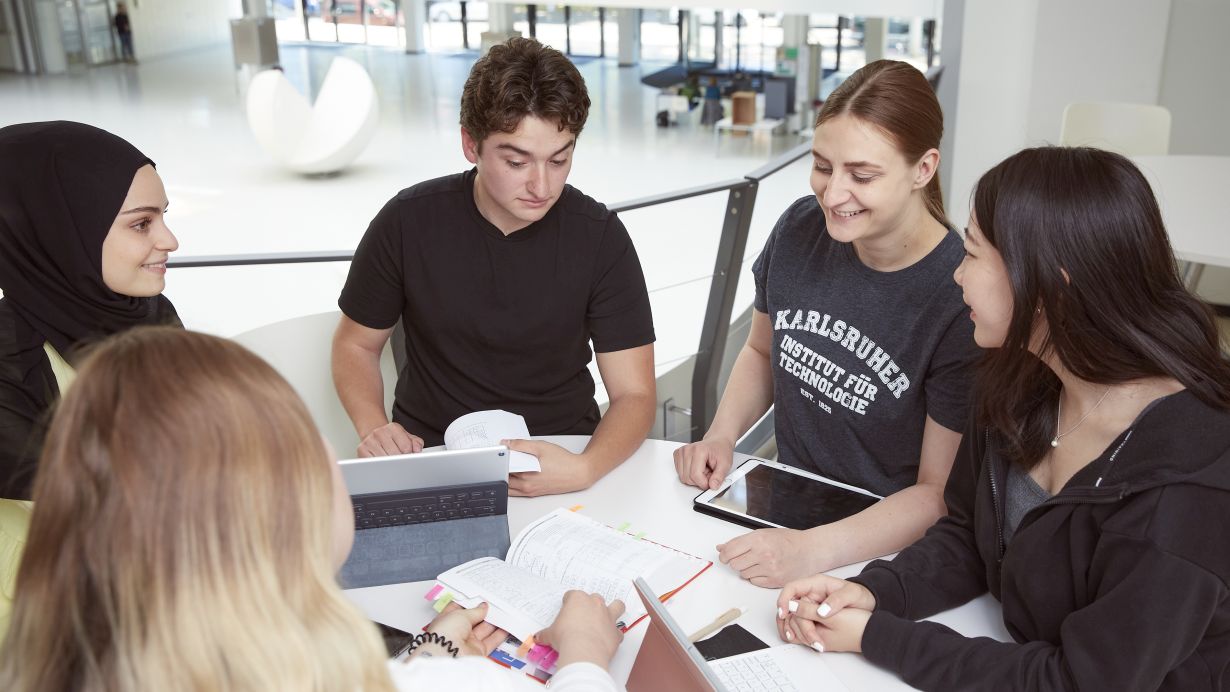For an interdisciplinary teaching project, KIT (Karlsruhe Institute of Technology) has received grants from the Carl Zeiss Foundation’s “CZS Rethink” program. In the “Enforcing Education for Sustainability in Engineering” (EESY Engineering) project, the researchers are developing four core modules on sustainability to be integrated into engineering sciences study programs. The aim is to enable students to use their specialist skills in a critical and application-oriented manner for sustainable development.
Education for Sustainable Development (ESD) enables people to think and act in a future-oriented way, i.e., making them understand the consequences of their own actions so that they can make responsible, sustainable decisions. As a place for sustainable thinking and acting, KIT enables young people to contribute to sustainable developments in society, industry, and science.
As a technical university, KIT’s focus is on the academic education in natural sciences and engineering disciplines. “With its intense scientific and research-oriented education of its students, KIT makes a significant contribution to the transformation of society towards a more sustainable future,” says Professor Alexander Wanner, Vice President Higher Education and Academic Affairs at KIT. “To fully exploit this potential, KIT’s sustainability strategy has the declared goal to integrate ESD into all curricula across the board. This is exactly where we come in with the EESY Engineering project by integrating the topic of sustainability into engineering sciences study programs.”
Anchoring ESD in the Curricula
Building on existing structures in the Mechanical Engineering and Electrical Engineering departments, the teaching staff are developing a basic formula to anchor ESD in KIT’s engineering sciences master’s programs. It is planned to transfer this formula successively to other suitable study programs as well. This will impart sustainability skills, especially on the system and material levels, as well as in the energy systems and circular economy areas, to the students. After completion of the project, at least one of the key sustainability topics should be established in every engineering science study program at KIT.
“EESY Engineering” is scheduled to run for four years. It is one of seven projects at universities in Baden-Württemberg that were selected for funding in a two-stage competition. The Carl Zeiss Foundation is funding these projects with around half a million EUR each.
About the Carl Zeiss Foundation
The Carl Zeiss Foundation is committed to creating settings that foster scientific breakthroughs. As a partner for first-class science, it supports both basic research and application-oriented research and teaching in the STEM subjects (science, technology, engineering and mathematics). Established in 1889 by physicist and mathematician Ernst Abbe, the Carl Zeiss Foundation is one of the oldest and largest private foundations for the promotion of science in Germany.
See the Carl Zeiss Foundation’s website for more information about the “CZS Rethink” program and the “EESY Engineering” project.
In close partnership with society, KIT develops solutions for urgent challenges – from climate change, energy transition and sustainable use of natural resources to artificial intelligence, sovereignty and an aging population. As The University in the Helmholtz Association, KIT unites scientific excellence from insight to application-driven research under one roof – and is thus in a unique position to drive this transformation. As a University of Excellence, KIT offers its more than 10,000 employees and 22,800 students outstanding opportunities to shape a sustainable and resilient future. KIT – Science for Impact.

